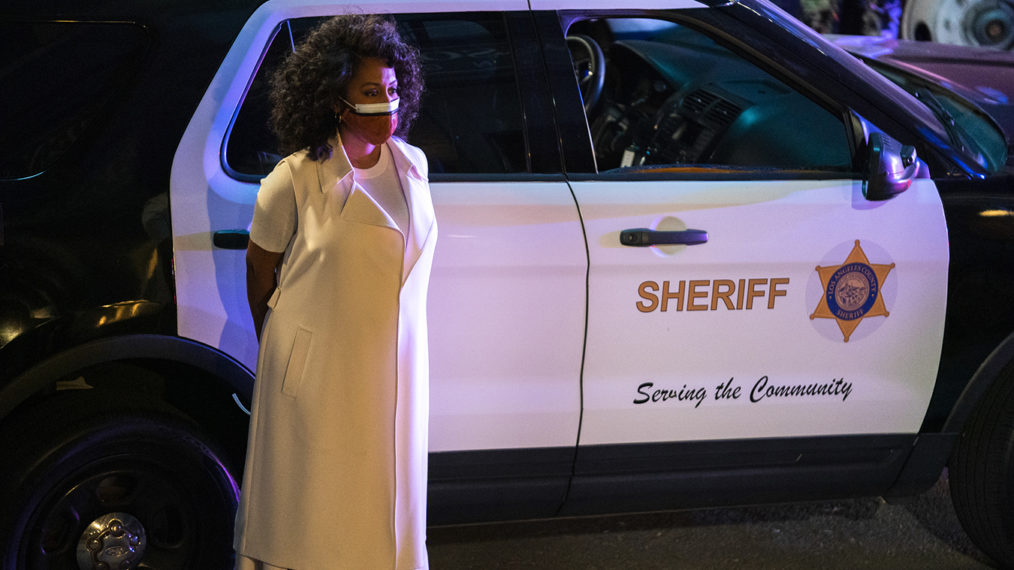
- Television
Pandemic TV: How TV’s First Responders Deal with COVID-19
Firefighters have often been the unsung heroes of a major tragedy. But it took an event as massive as 9-1-1 for most people to wake up to their bravery. Ever since it seems their presence as characters of film and TV shows has increased. So it is no surprise that shows like Chicago Fire, 9-1-1 and its spinoff 9-1-1: Lone Star are all incorporating into their new seasons, the work these frontline workers do during the pandemic.
Tim Minear, the executive producer of the 9-1-1 series has teased that aside from having his characters respond to COVID-emergencies in between their other calls and the firefighters and paramedics dealing with real-life situations, there are also plans on having some of them quarantine together, which would lead to a little comic relief.
Chicago Fire’s approach is a little more subtle with the stories, continuing to focus mainly on the usual calls, but with all the characters wearing masks when handling strangers outside of the firehouse. This subtle hint to viewers about mask-wearing was also adopted by Law & Order: Special Victims Unit, another drama series where business as usual is not quite as before the pandemic when detectives Benson, Tutuola, and their colleagues interrogate and investigate criminals in socially distanced settings. Just like its sister series Chicago P.D., it also deals with racism and the Black Lives Matter-movement in the face of the pandemic. That is not surprising for this type of television series, given that the most successful ones, dating way back to the beginnings of the Law & Order-franchise, have always applied a ‘ripped-from-the-headlines’-approach.
The same goes for Grey’s Anatomy’s companion series Station 19, where characters from both shows intertwine (over-qualified paramedic Ben Warren used to be a doctor at Grey Sloan Memorial and is married to Dr. Miranda Bailey, head of emergency there). Both of them are set in Seattle with the added geographical detail of them being only three blocks apart, leading to a few crossover episodes this season. Station 19 is its fourth year and had a very dramatic season 3 finale with Andy (Jaina Lee Ortiz), Maya (Danielle Savre), and Sullivan (Boris Kodjoe) trying to up the ante with some virus-related plots.
In NCIS: New Orleans, it is CCH Pounder’s character, the forensic pathologist Dr. Loretta Wade, who is at the center of the pandemic as her morgue is flooded with the bodies of people killed by the virus, “including one person my character knew personally” the actress says.
And then there are the lawyers. Not exactly first responders, they are nonetheless affected, and some shows have taken on the storyline with All Rise – about the Los Angeles Criminal Court system – being the very first one when they shucked a previously written season finale and replaced it with an entirely remotely produced episode after the March production shutdown. When they returned to air in early May, the new season of the network show was the first to include the pandemic in its storylines. In the episode Dancing at Los Angeles the characters deal with practicing law from their homes while still making sure their clients get a fair trial under the difficult circumstances.
Not all shows have successfully navigated the themes of 2020 and 2021. At the beginning of last summer, Andy Samberg gave a statement about his sitcom Brooklyn 99 rethinking how to continue to write a police comedy in the Black Lives-matter era. The show had already scrapped four episodes that were shot before and supposed to air shortly after the police killing of George Floyd. The sitcom shows police officers across the board as good people. But critics took issue with the goofing off and lighthearted tone of the comedy in light of the growing police killings that started to dominate the front page news. Creator Mike Schur is trying to address this with episodes that have dealt with sexism within the department and other previously unaddressed themes, but it is obvious that taking on big issues of the real world is much easier for a drama series than a comedy one.